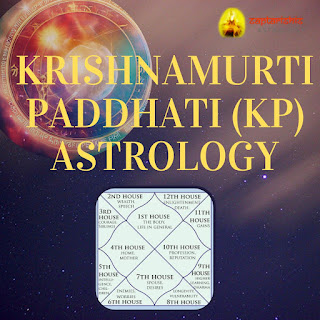Retrograssion Planets in Astrology: Vedic Perspectives and Effects
Introduction
What is Retrogradation in Astrology?
In astrology, the apparent backward motion of a planet is known as retrogradation. It occurs when Earth's orbit intersects with the orbit of another planet, causing the latter to appear to move in reverse temporarily. While the retrograde motion is only an optical illusion, astrologers believe it holds great significance in influencing human behavior, emotions, and life events.
Retrograde Planets in Western Astrology
In Western astrology, the retrograde periods of Mercury, Venus, Mars, Jupiter, and Saturn are commonly considered in astrological interpretations. Each planet's retrogression brings its own unique energies and influences:
1. Mercury Retrograde: Perhaps the most well-known retrograde, Mercury's backward motion can affect communication, travel, technology, and decision-making. During this period, misunderstandings, delays, and technological glitches may be more prevalent.
2. Venus Retrograde: Venus governs love, relationships, beauty, and finances. Its retrograde may cause tension and challenges in romantic relationships, as well as introspection regarding one's values and self-worth.
3. Mars Retrograde: Mars is associated with energy, action, and passion. When retrograde, it may lead to frustration, suppressed anger, and a slowdown in personal or professional endeavors.
4. Jupiter Retrograde: Jupiter represents growth, expansion, and opportunities. Its retrograde phase might bring delays in progress, making it a time for inner reflection and reassessment of life goals.
5. Saturn Retrograde: Saturn symbolizes discipline, responsibility, and karma. During its retrograde, one may face the consequences of past actions and need to confront challenges to grow and evolve.
Retrograde Planets in Vedic Astrology
Vedic astrology, also known as Jyotish, has its unique perspective on retrograde planets. In Vedic astrology, the Moon's nodes, Rahu and Ketu, are considered significant retrograde points in the celestial sphere. These shadowy planets hold karmic implications and represent the points where the Moon's orbit intersects with the ecliptic path.
1. Rahu Retrograde: Rahu is associated with desires, ambitions, and worldly attachments. Its retrograde period can trigger intense inner conflicts and a sense of unfulfillment, pushing individuals to explore their spiritual path.
2. Ketu Retrograde: Ketu governs spirituality, detachment, and past-life connections. When retrograde, Ketu may lead to a deeper understanding of one's subconscious patterns and propel individuals towards self-realization.
Effects of Retrograde Planets
The effects of retrograde planets are not inherently negative. Instead, they offer valuable opportunities for growth and self-awareness. Retrogrades prompt individuals to reevaluate their life choices, reassess their goals, and confront unresolved issues. These periods can be challenging, but they also provide a chance to break free from limiting patterns and embrace personal transformation.
It's important to remember that astrological influences are just one aspect of life, and individual free will plays a crucial role in shaping outcomes. While retrograde periods may present obstacles, they also hold the potential for valuable lessons and growth.
The Retrograde Journey: A Deeper Dive
1. The Astrological Houses and Retrograde Planets: Understanding how retrograde planets interact with specific astrological houses and their impact on various aspects of life.2. Navigating Retrograde Mercury: Tips and strategies to navigate the often-dreaded Mercury retrograde and harness its energies positively.
3. The Dance of Venus Retrograde: Exploring the effects of Venus retrograde on relationships, self-love, and creative pursuits.
4. The Warrior Within: Unleashing Mars Retrograde's Hidden Power: How to utilize the intensity of Mars retrograde to overcome challenges and achieve goals.
5. Jupiter's Wisdom in Retrograde: Embracing the spiritual and philosophical insights offered by Jupiter's retrograde motion.
6. Saturn Retrograde: Embracing Responsibility and Growth: Understanding the lessons and karmic implications of Saturn's retrograde period.
Conclusion
Retrograde planets hold a special place in astrology, be it Western or Vedic, as they offer unique insights into the complexities of human existence. Understanding their effects can help individuals navigate through challenging times and harness the energies to their advantage. Embracing the cyclical nature of planetary movements empowers us to align our actions with cosmic rhythms and lead more fulfilling lives. Whether you seek guidance during Mercury retrograde or introspection during Rahu's backward motion, remember that astrology is a tool for self-discovery and self-improvement. Embrace the retrograde journey, for it may hold the key to unlocking your true potential and embracing the mysteries of the universe.
.jpg)


Comments
Post a Comment